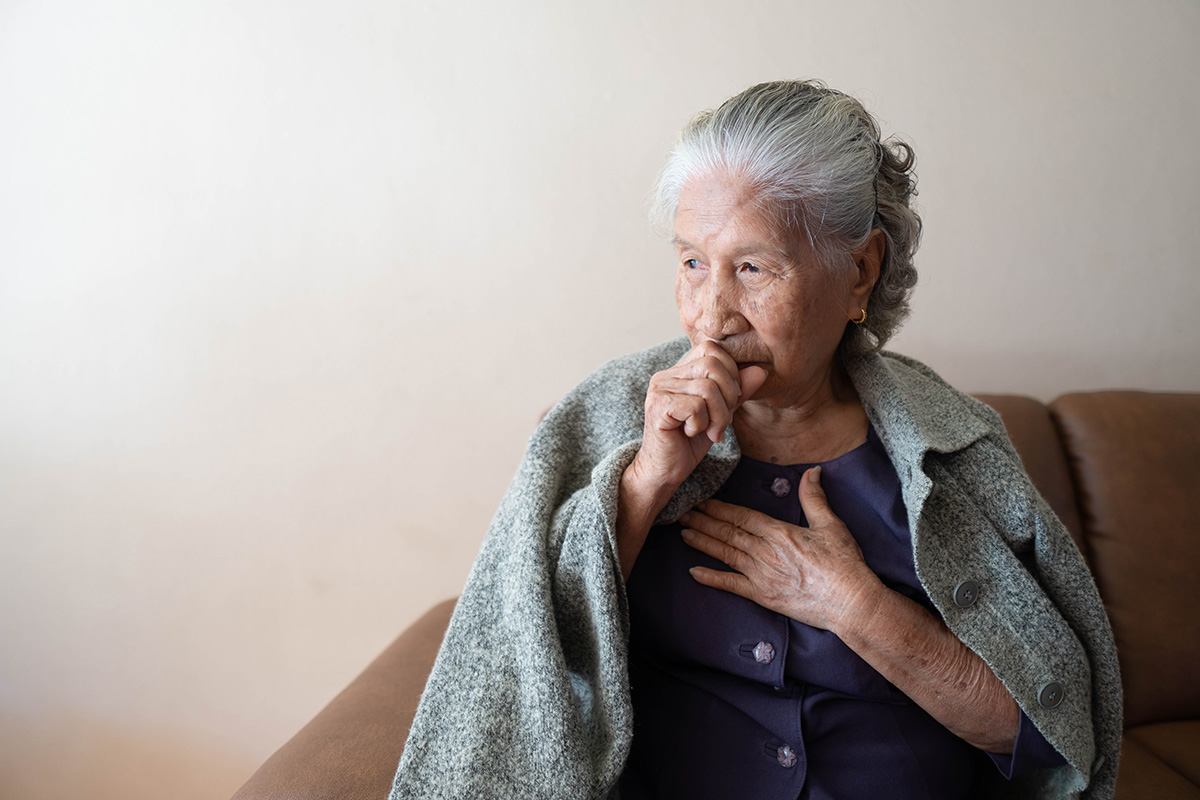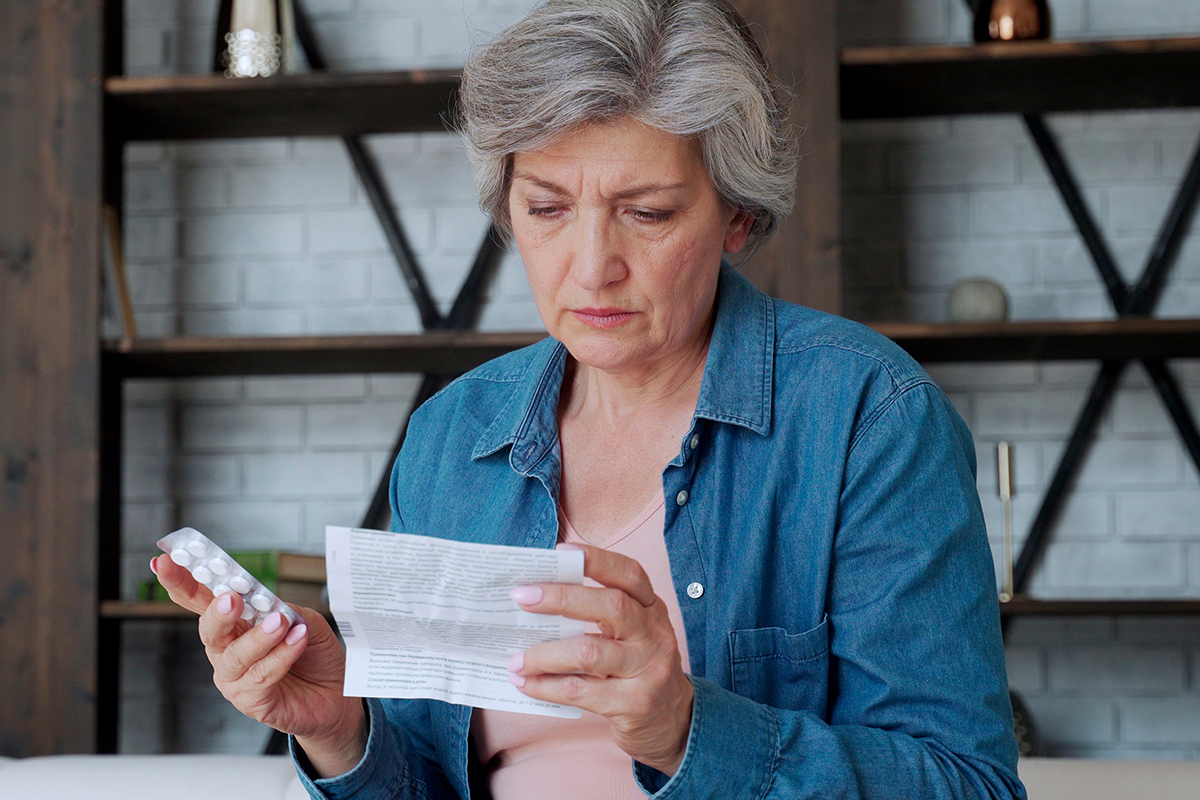
Trial Spotlight: Jarushka Naidoo on the EAQ172 Trial for Steroid-Refractory Pneumonitis
January 26, 2022
Now Enrolling: EA3202 for Head and Neck Squamous Cell Carcinoma
January 26, 2022Come Again? Communicating Clearly About Risk of Recurrence After Early-Stage Breast Cancer

 Five years. For many breast cancer survivors, this is a significant milestone. If cancer is going to recur, it often does so within five years after diagnosis. Yet this is not the case for all types of breast cancer, a fact not known by many of the very patients it affects. For example, ER-positive, HER2-negative breast cancer tends to recur after five years about 50% of the time. Patients can take steps toward ensuring they have the best chance of remaining disease free—but are they likely to if they are not aware they are still at risk?
Five years. For many breast cancer survivors, this is a significant milestone. If cancer is going to recur, it often does so within five years after diagnosis. Yet this is not the case for all types of breast cancer, a fact not known by many of the very patients it affects. For example, ER-positive, HER2-negative breast cancer tends to recur after five years about 50% of the time. Patients can take steps toward ensuring they have the best chance of remaining disease free—but are they likely to if they are not aware they are still at risk?
Mary Lou Smith, JD, MBA and colleagues at the Research Advocacy Network recently explored this issue and presented their findings at the 2021 San Antonio Breast Cancer Symposium. They conducted focus groups and interviews with two different cohorts: (1) women who had never had cancer, to represent the perspective of newly-diagnosed patients, and (2) women who had received a diagnosis of early-stage breast cancer within the last two years. Below, she discusses this qualitative research project and its results.
What inspired this project?
Previously, we did research with patients with metastatic breast cancer. Their primary concern is disease progression, so we asked a lot of questions about that. What does progression mean to them? How did they find out about it?
When it comes to patients with early-stage breast cancer, their primary concern is recurrence. They do not want the cancer to come back. We are now finding that people have recurrence after 10 or 15 years, especially those with ER-positive, HER2-negative disease. My cancer came back after 21 years. Patients often think of five years as magic, but that is not always the case. That is what prompted this work—the understanding that recurrence can happen later and the concern that people may think they are home free after five years.
What are the implications if people think they are in the clear after five years?
They might become lax with their follow-up care and monitoring. Another major concern is adherence to estrogen therapy. Some people will decide to stop treatment, without consulting their doctor, because of side effects or for other reasons. They might have continued their therapy if they better understood their risk of recurrence.
What are your key findings?
We found that information needs are high. People do not understand recurrence—even those who have been through treatment—and there is a downside to that. When you are first diagnosed, your care team provides so much information. You are overwhelmed and simply do not retain it all. We also found that communication timing was a central theme. As treatment progresses and, ideally, is successful, you have less time with your doctor each visit. By the time you get to endocrine therapy, time with your physician is often limited. Patients do not always make the connection between recurrence risk and endocrine therapy. We found that recurrence risk was insufficiently linked to the recommendation to take a long course of oral (endocrine) therapy that often has significant side effects. Some interviewees were reticent to continue oral therapy, particularly without knowing why it mattered.
Since risk is a complex concept, we wondered if understanding it might correlate with education level. We still think this question is worth exploring with a large data set. But we had one anecdote that got my attention since the patient had a high educational level, yet she was thinking about stopping her endocrine therapy because of the side effects. She did not seem to know the benefit, and it was unclear whether she was going to talk to her doctor or do any research.
In addition to not understanding risk of recurrence, participants also did not grasp other aspects of recurrence. Many of them thought the term distant recurrence referred to the length of time between the end of treatment and recurrence, which makes a lot of sense! Some believed that if the cancer came back in the lung, it was lung cancer. The terms the oncology community uses are not understandable to laypeople. We need to be more careful with our language.
What can physicians and cancer care teams do to help address this problem?
Every time a patient’s treatment plan changes, physicians and healthcare providers should revisit why, underscoring that the reason is to reduce the chance of the patient having a recurrence. Discuss the risk of recurrence at the beginning, but also throughout all stages of treatment, particularly when a new treatment or follow-up plan is introduced. Ask the patient to repeat what they have heard to be sure they understand. If physicians are good at this process, it helps to build trust. The more trust, the better the conversations and ultimately the better the patient’s future.
How do you hope this research will impact patient care?
I hope it will lead to better adherence to treatment and monitoring, and improved understanding about why adherence is important. We are all better off if we understand the ‘why.’ If you tell me why, then I am more likely to make a decision in favor of my health. I also hope this work will lead to increased trust and shared decision-making between patients and physicians.
Mary Lou Smith chairs the ECOG-ACRIN Cancer Research Advocates Committee. She is also the cancer research advocacy representative to the ECOG-ACRIN Executive Committee, co-chair of the ECOG-ACRIN NCORP Community Advisory Committee, and an advocate representative to the ECOG-ACRIN Breast Cancer Committee.
![ECOG-ACRIN logo[19516]275×75](https://blog-ecog-acrin.org/wp-content/uploads/2021/03/ECOG-ACRIN-logo19516275x75.png)
